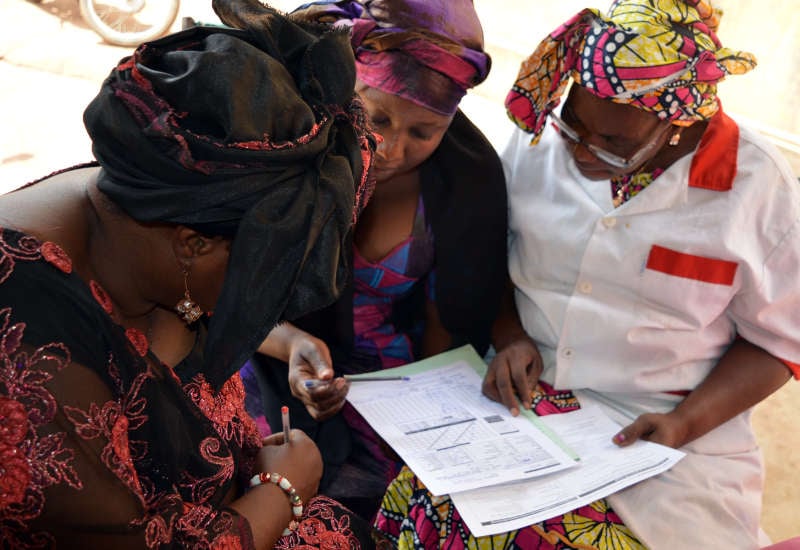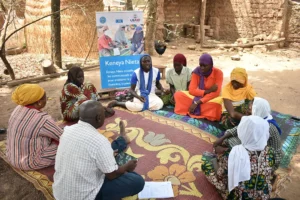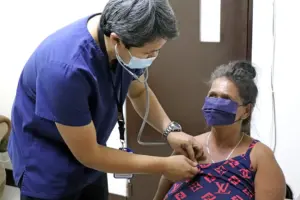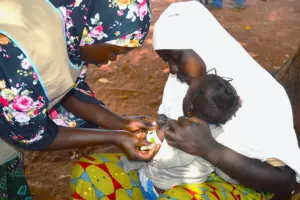Advisors and chief counselors of the Zambougou Zoumaira Village at a community meeting with URC President Earl Gast. Photo credit: Influence Agence Conseil
Mali
Although Mali’s health sector has experienced significant improvements in recent years, the country faces serious challenges. Health resources – including facility-based services, physicians, and essential medicines – are scarce. Population health indicators related to nutrition, maternal, reproductive, and child health are weak, and infectious diseases such as malaria, TB, and vaccine-preventable diseases are endemic.
Despite these challenges, the government has made a commitment to provide free health care to pregnant women and children under five. As part of this commitment to extend the reach of health services and support healthy, resilient communities, Mali is implementing a community-based integrated service delivery model.
URC’s work in Mali began in 1981 through the Primary Health Care Operations Research Project, which strengthened primary health care services. These health systems strengthening efforts continued under the USAID-funded Quality Assurance (QAP) Project and its successors, the Health Care Improvement Project (HCI) and the Applying Science to Strengthen and Improve Systems (ASSIST) Project. These projects supported the Ministry of Health to improve the quality of maternal and newborn services with lasting impact on the reduction of child and maternal mortality.
As an example, ASSIST trainings resulted in a reduction in newborn mortality due to asphyxia from 85% in 2013 to 6% in 2017. From 2016 to 2017, the postpartum hemorrhage rate in 306 project-supported sites decreased from 17.2 to 2.1 cases per 1,000 deliveries after ASSIST trained quality improvement teams on ensuring compliance with best practices in safe childbirth.

Current Projects
In 2020, URC was awarded USAID Keneya Nieta, an integrated community health activity tasked with improving health access and use at the community level. The Activity aims to help build a resilient community health system where Malians are empowered to use local resources to better plan, finance, and manage their health and hold the health system accountable.
USAID Keneya Nieta uses participatory community-based methods, social and behavior change communications, innovative financial and governance interventions and new technologies to address cultural and social barriers and norms that impact health and care-seeking behaviors. With an emphasis on the needs of mothers and children, USAID Keneya Nieta works closely with local partners and extends the reach of community health workers to reduce maternal, newborn, and child mortality. The Activity is working in the Mopti, Ségou, and Sikasso regions.


